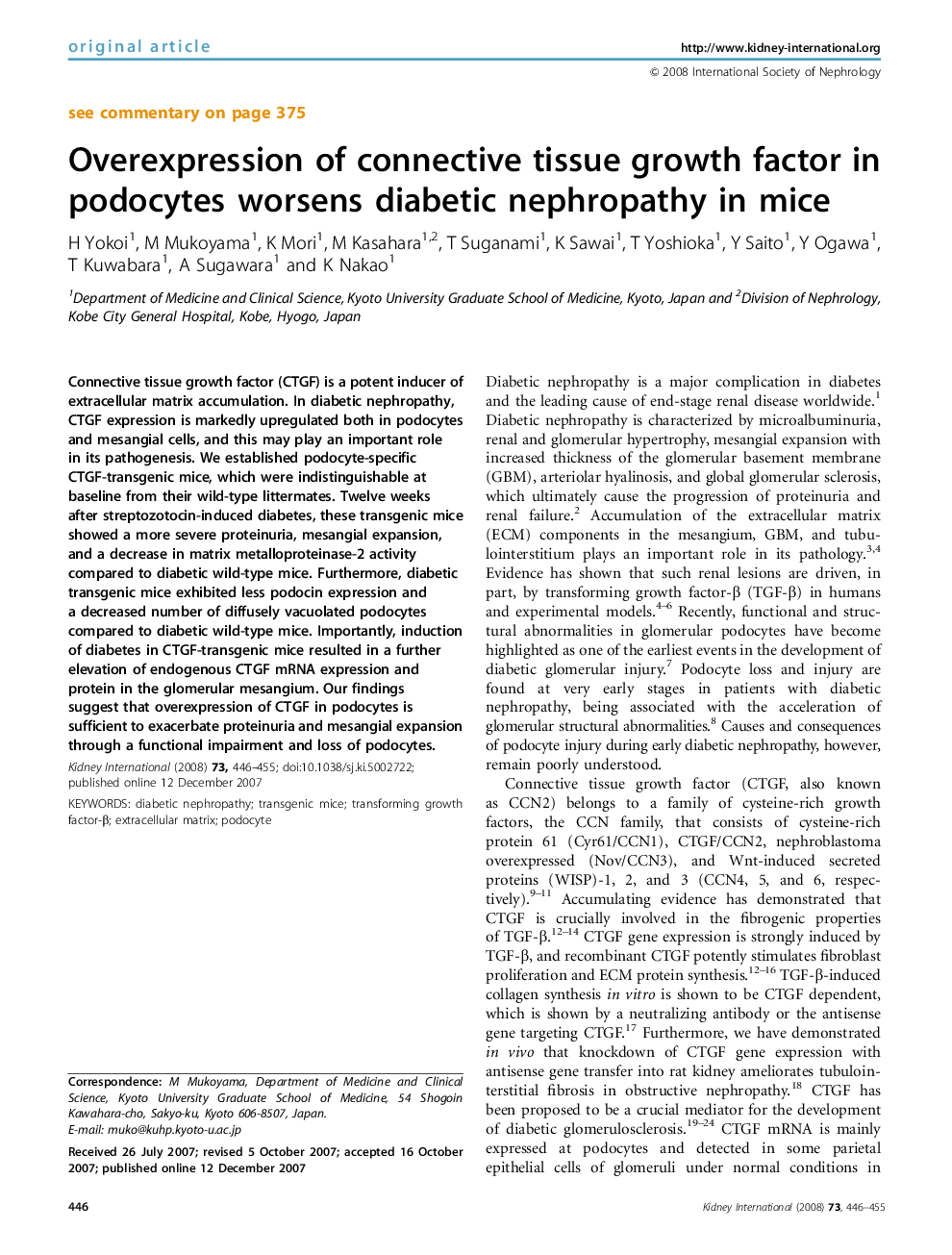| Article ID | Journal | Published Year | Pages | File Type |
|---|---|---|---|---|
| 3886730 | Kidney International | 2008 | 10 Pages |
Connective tissue growth factor (CTGF) is a potent inducer of extracellular matrix accumulation. In diabetic nephropathy, CTGF expression is markedly upregulated both in podocytes and mesangial cells, and this may play an important role in its pathogenesis. We established podocyte-specific CTGF-transgenic mice, which were indistinguishable at baseline from their wild-type littermates. Twelve weeks after streptozotocin-induced diabetes, these transgenic mice showed a more severe proteinuria, mesangial expansion, and a decrease in matrix metalloproteinase-2 activity compared to diabetic wild-type mice. Furthermore, diabetic transgenic mice exhibited less podocin expression and a decreased number of diffusely vacuolated podocytes compared to diabetic wild-type mice. Importantly, induction of diabetes in CTGF-transgenic mice resulted in a further elevation of endogenous CTGF mRNA expression and protein in the glomerular mesangium. Our findings suggest that overexpression of CTGF in podocytes is sufficient to exacerbate proteinuria and mesangial expansion through a functional impairment and loss of podocytes.
